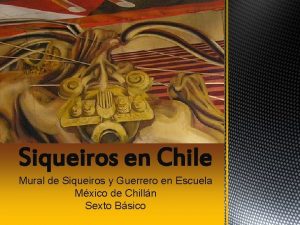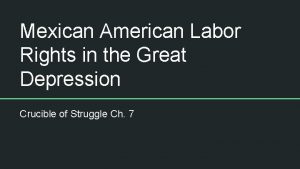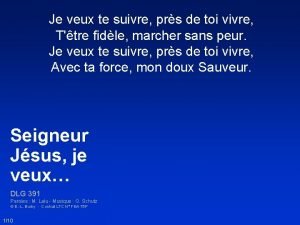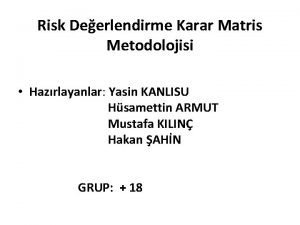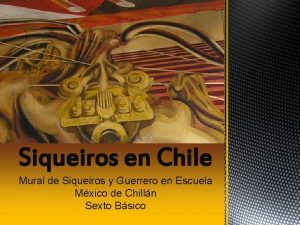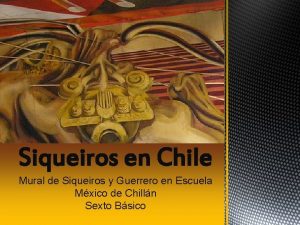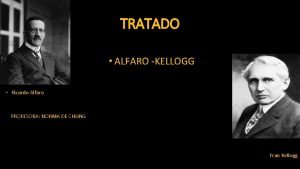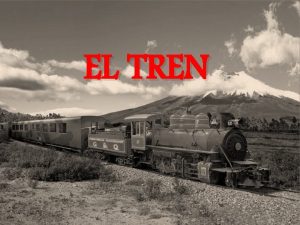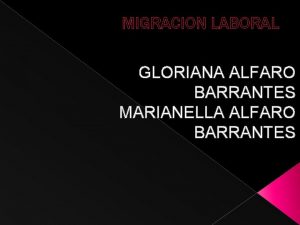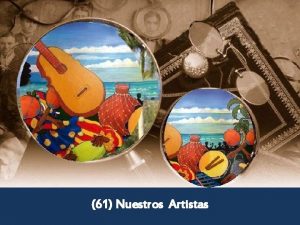David Alfaro Siqueiros Pres e Jean ntacin ine










- Slides: 10

David Alfaro Siqueiros Pres e Jean ntación ine C arr

Biografía David Alfaro Siqueiros (1896 -1974) was among the most famous of all Mexican painters and muralists, ranking alongside the great Diego Rivera and Jose Clemente Orozco. Siqueiros was born in Chihuahua and trained at the Escuela Nacional de Belles Artes in Mexico City. He participated in the revival of fresco painting initiated by government sponsorship of murals in public buildings, later creating frescoes in the United States. A political activist as well as artist, Siqueiros' exterior frescoes focused on dynamic revolutionary themes to help inspire the lower classes. His bold and vividly-colored paintings, often representing contorted and intensely emotional figures, soon became famous throughout the western hemisphere. In 1962, the Mexican government sentenced Siqueiros to eight years in prison for organizing left-wing student riots in 1960 (when Siqueiros was 64 years of age); two years later, in 1964, Siqueiros was pardoned. After his release from prison, one of his most monumental works, "March of Humanity, " was created on a hotel in the Parque de Lama, Mexico City.

Siqueiros por Siqueiros / Taxco 3, 1930

Mother and Child

The Battle

Tierra Roja

Siqueiros en Los Ángeles While working on his projects in southern California, Siqueiros made several important technical innovations to the mural painting process. These included doing frescos on concrete instead of plaster walls, transferring designs to walls with camera-projection, painting with an airbrush for fast application, and using stencils to get sharp edges.

La nueva democracia (detalle), 1944 -45. Palacio de Bellas Artes, Ciudad de México.

Mujer con rebozo - 1949

La Revolución contra la dictadura porfiriana: El golpe en Cananea (detalle), 1952 -54. Museo Nacional de Historia, Ciudad de México.

